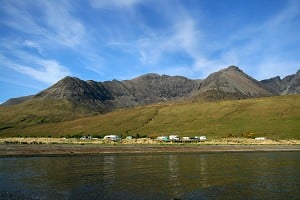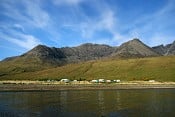In reply to Doug:
The Hen Harrier is a typical case. We have most of the heather moorland in europe which in this country is prime Hen Harrier habitat. Yet this last year NO hen harrier bred in England. And one of the handful of birds that was reared last year was found shot dead on or close to a shooting moor in The Yorkshire Dales.
The RSPB cannot police every moor. I'm on the moors in NY almost every week. I can walk all day most days in the week and not see another human on uplands. Gamekeepers are not stupid. Any doubt that they might be observed there are many ways of Hen Harrier removal. Driving 'accidentally' over the nest is one way. So is parking up on a cold spring morning close to a nest with eggs and staying long enough for the eggs to get cold. "I was having my tea officer - I didn't notice a nest here?". 'Keepers are out at night legitimately shooting foxes - a time when they are almost certainly unobservable. You try keeping up with a 4X4 at night over moorland you have no right to be on, in a vehicle, and I think they';ll probably notice.
I'm a voluntary ranger and do bird surveys for the Hawk & Owl Trust. They manage an ex grouse moor (Fylingdales) which hasn't been shot over for well over 30 years. I've seen a few 'Harriers about but none have stayed to breed. And even then there's no chance of stopping a harrier from wandering onto ground that is heavily keepered. They need large territories and each year the cost of moorland and the profits from shooting over them are going up.
The RSPB currently employ a 'Sky Dancer officer' (named after the so called mating dance the harrier does)whose current objective is education and i've been to one of her presentations and she certainly knows her stuff and what she's up against. Its largely education which allowed the Sea Eagle to return and which prevents many other birds of prey on other estates exist. Game keepers get better educated!!
I've also been to a presentation by a 'game keeping' instructor at a local agri college and he tells gamekeepers to stick to the law and points out the cost/balance of racing after one bird just to save a few grouse/pheasants/ etc./, etc.,
Game keepers on the face of it know they are heavily criticised by the public and will expell any member whose caught committing illegal acts. I also knew a gamekeeper I'd been friends with for years tell me most indignantly he wouldn't dream of shooting Hen Harriers (I believe him) and I currently am aware of a game keeper who is well aware that there's a Goshawk currently nesting in a wood in the middle of some moorland he's the keeper for. He seems to be quite happy to allow it to stay and it almost certainly takes the odd grouse and probably the odd chick too in season.
Perhaps licensing shooting estates is one answer. I certainly can't think of any other!
Post edited at 20:35









